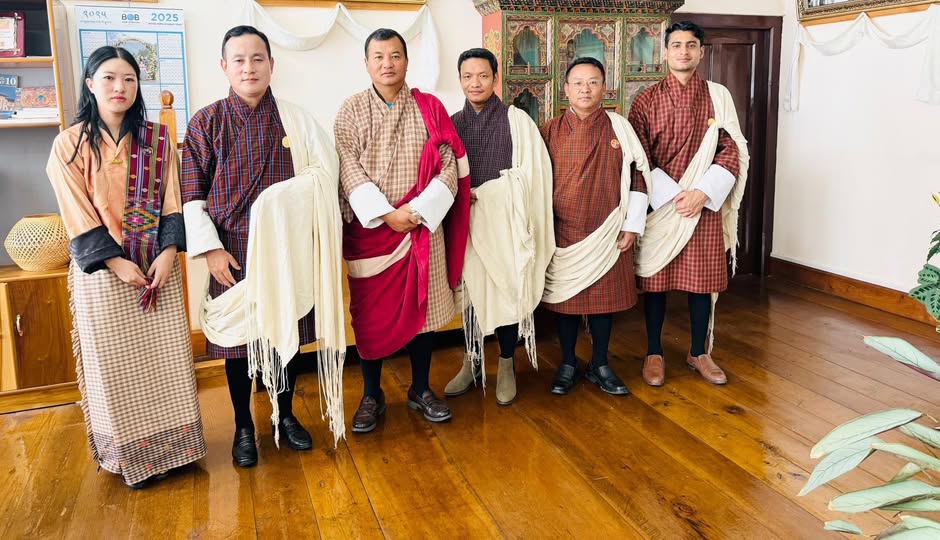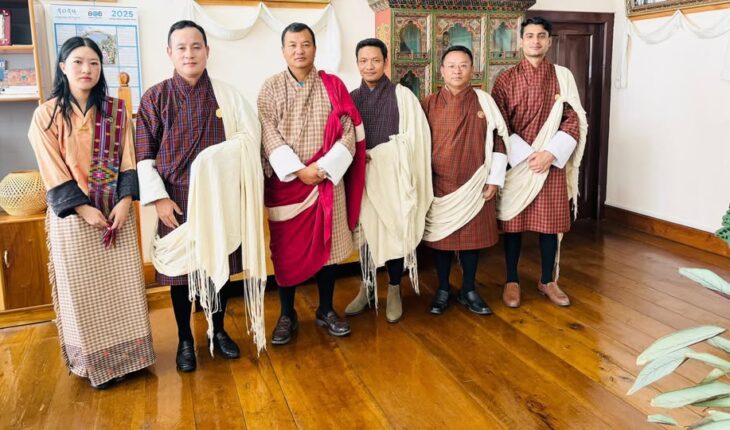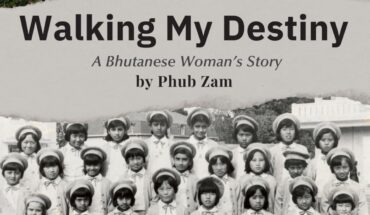
DAWA ZANGMO
Thimphu
The Horticulture Association of Bhutan (HoAB) has entered into a strategic partnership with the Canada Fund for Local Initiatives (CFLI) to roll out a nationwide programme aimed at improving eco-friendly packaging and labelling in Bhutan’s horticulture sector.
Scheduled to run from August 2025 to March 2026, the initiative is designed to benefit farmers, small-scale producers, youth-led enterprises, and women entrepreneurs, boosting their competitiveness in domestic and international markets while reinforcing Bhutan’s environmental commitments.
According to HoAB Secretary General Tashi Dendup, the project addresses three pressing challenges in the horticulture industry.
Loss of freshness and quality before produce reaches markets due to poor packaging and storage; missed opportunities with premium buyers caused by non-compliant packaging and labelling; and increasing use of non-recyclable materials that threaten Bhutan’s image as a carbon-negative nation.
“This partnership with CFLI will go a long way in empowering Bhutanese growers and producers to be more competitive, climate-conscious, and better connected to markets both at home and abroad,” he said.
“It’s not just about packaging it’s about protecting product quality, telling our story through branding, and meeting the demands of high-value markets.”
The initiative will officially launch in Mongar Dzongkhag, chosen for its role as a key commercial hub in eastern Bhutan, enabling farmers and entrepreneurs from surrounding districts to access training and share knowledge through established trade networks.
Outreach will also extend to Lhuentse Dzongkhag, one of Bhutan’s more remote districts, where a dedicated advocacy day will raise awareness of sustainable packaging practices among producers with limited market exposure.
Training in Mongar will focus on practical, hands-on sessions covering eco-friendly packaging methods, shelf-life extension, and market-compliant labelling. Participants will also be trained in branding and storytelling to enhance product appeal and market value.
The programme includes post-training mentorship, with experienced trainers offering one-on-one and group guidance to help participants apply lessons to their specific products and business contexts.
HoAB will provide at least three months of online follow-up support to maintain momentum, share resources, connect producers with buyers, and resolve challenges.
The advocacy programme in Lhuentse will complement these activities by promoting the economic and environmental benefits of sustainable packaging.
A significant component of the project is its sustainability plan. HoAB will create a pool of local trainers, prioritizing women and youth, through a Training of Trainers program, enabling knowledge replication across communities.
Regional demonstration hubs will be established in Mongar and Lhuentse to facilitate ongoing learning.
Partnerships with suppliers will be formed to ensure affordable access to eco-friendly packaging materials, while youth-led service ventures will be encouraged to offer packaging solutions to farmer groups.
In addition, HoAB will organize follow-up courses in financial literacy, project management, and business planning, equipping participants with the skills to manage resources effectively, negotiate with buyers, and grow their enterprises.
‘’The partnership aligns with Bhutan’s Strategic Economic Roadmap and the 13th Five-Year Plan, both of which emphasize climate resilience, agricultural competitiveness, and inclusive growth,” said Secretary General Tashi Dendup.
By reducing plastic waste, the initiative supports Bhutan’s carbon-negative pledge while improving the quality, safety, and branding of horticultural products for domestic and export markets.
It also advances equitable access to green jobs, with women and youth playing an active role in implementation.
Impact will be evaluated through sales, pricing, and market reach before and after training. Where possible, and with donor or government support, a baseline survey will be conducted to assess income changes.
Progress will be tracked through online monitoring, case studies, buyer feedback, and gender disaggregated data.
“We want to ensure that the packaging solutions are not just adopted but also translated into real income gains and wider market access for our farmers,” Tashi Dendup noted.
HoAB established in 2010, serves as the national representative body for horticulture producers, traders, and exporters.
It promotes sustainable farming, improves post-harvest handling, and enhances market presence for Bhutanese products.
Over the years, HoAB has led projects on cold storage, farm-to-market linkages, and organic certification, maintaining a focus on sustainability and inclusivity.
The collaboration with CFLI reflects a shared vision for a horticulture sector that is competitive, climate-conscious, and socially inclusive.
“CFLI’s belief in our vision and their commitment to inclusive, climate-smart development has made this initiative possible,” Tashi Dendup, Secretary General said.
“Together, we are not only helping farmers compete in better markets but also ensuring that Bhutan’s horticulture sector grows in harmony with our environmental and cultural values.”
By March 2026, HoAB expects measurable improvements in product quality, market readiness, and income for participating producers.





